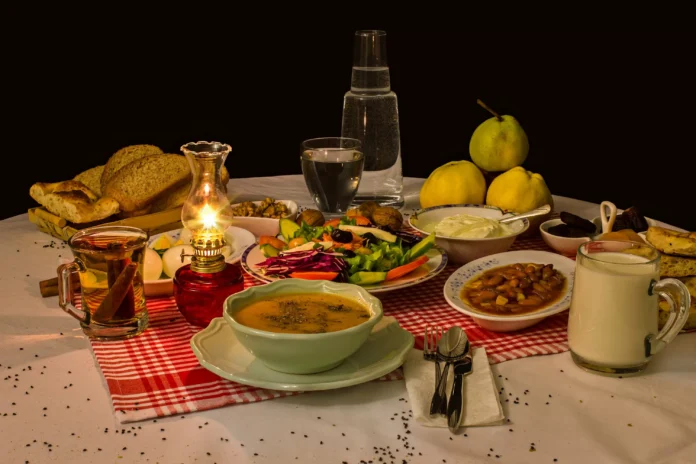Medipol Mega University Hospital Nutrition and Diet Specialist Recommends Foods for a Healthy Sahur
As the month of Ramadan approaches, many Muslims are preparing for the holy month of fasting. During this time, it is important to pay attention to our diet and make healthy food choices to keep our bodies nourished and energized throughout the day. Medipol Mega University Hospital nutrition and diet specialist Asya Naz Al has shared some valuable insights on the importance of sahur and the foods that should be consumed during this pre-dawn meal.
According to Al, sahur is the most important meal of the day during Ramadan as it provides the necessary energy and nutrients to sustain us throughout the long hours of fasting. However, she emphasizes that it is not just about filling our stomachs but making smart food choices that will keep us fuller for longer and balance our blood sugar levels.
One of the key factors to consider when planning a sahur meal is the glycemic index (GI) of the foods we consume. GI is a measure of how quickly a food raises our blood sugar levels. Foods with a low GI are digested and absorbed slowly, providing a steady release of energy and keeping us satiated for a longer period of time. On the other hand, foods with a high GI cause a rapid spike in blood sugar levels, leading to a short-lived feeling of fullness and a subsequent energy crash.
Al recommends incorporating low GI foods in our sahur meals, such as whole grains, legumes, fruits, and vegetables. These foods are rich in fiber, which slows down the absorption of sugar into our bloodstream, keeping us fuller for longer. She also suggests including lean protein sources like eggs, chicken, and fish, which can help regulate blood sugar levels and provide sustained energy throughout the day.
Another important aspect of a healthy sahur meal is hydration. Al stresses the importance of drinking plenty of water and other hydrating fluids during sahur to prevent dehydration during the long hours of fasting. She also advises against consuming sugary drinks or caffeinated beverages, which can cause a spike in blood sugar levels and lead to dehydration.
In addition to the type of foods we consume, portion control is also crucial during sahur. Al recommends eating a balanced meal with moderate portions to avoid feeling overly full or bloated. She suggests dividing the sahur meal into two parts, with a gap of 15-20 minutes in between, to allow the body to digest the food properly and feel satiated.
For those who struggle with waking up for sahur or find it challenging to eat a full meal in the early hours of the morning, Al suggests having a light snack before going to bed. This can be a handful of nuts, a small bowl of oatmeal, or a piece of fruit. These options are easy to digest and can provide sustained energy throughout the fasting hours.
Al also emphasizes the importance of incorporating a variety of foods in our sahur meals to ensure a balanced and nutritious diet. She suggests including different types of fruits, vegetables, and protein sources to provide the necessary vitamins, minerals, and other essential nutrients.
In conclusion, sahur is a crucial meal during the month of Ramadan, and it is essential to make healthy food choices to keep our bodies nourished and energized throughout the fasting hours. Medipol Mega University Hospital nutrition and diet specialist Asya Naz Al recommends incorporating low GI foods, staying hydrated, practicing portion control, and incorporating a variety of foods in our sahur meals. Let us make the most of this holy month by nourishing our bodies with healthy and balanced meals.


